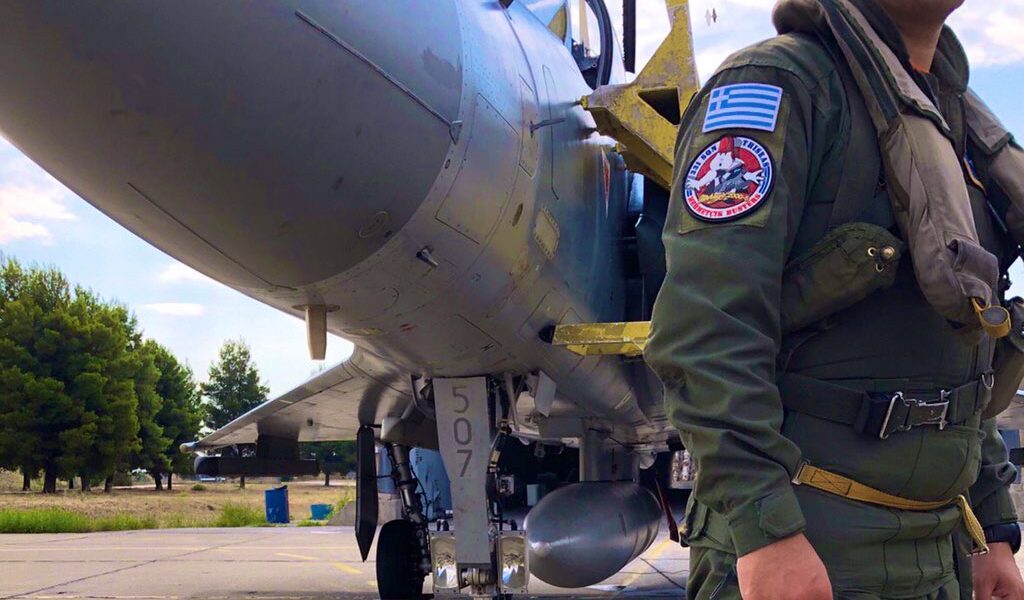One of the fundamental rights of countries under international law is that of armed self-defense, when there is a violation of their national sovereignty and especially when they are under military attack, and Greece today suffers from both. First of all, for quite some time now Turkey has been invading the Greek Exclusive Economic Zone (EEZ) and the continental shelf.
This action does not only affect some "distant" sovereign rights, as it tries to convince us of a powerful system of misinformation both in Greece and abroad, but it questions the legal status and the Greekness of all the Greek islands and therefore the EEZ-continental shelf. In other words, Turkey is not claiming a larger part of the EEZ-continental shelf, but it is bluntly and clearly arguing that the Greek islands do not have sovereign rights.
Essentially, it tries to impose a geopolitical reality, according to which all the islands of Greece in the Aegean do not exist from a legal point of view. And when a country does not have the right to exercise sovereignty over such a large part of its territory, it is generally annulled. In other words, Turkey has launched a campaign to "disappear" Greece from the world map as a normal state. In other words, it is waging a peculiar totalitarian war against us.
The pre-declaration of war is an attack
In addition, for a few days now, war threats against Greece have reached unprecedented levels. Turkish President Recep Tayyip Erdoğan, with his latest statements, has clearly and unequivocally announced a war against Greece. And this activates Greece's right to self-defense. When one country, clearly and bluntly, tells another that it intends to attack it, the defending country clearly has the right to defend its existence by taking the initiative. In no case is he obliged to passively wait to receive the first fire, so that he can then defend himself.
So, there are some sad views that are circulating in Athens, according to which if something is to be done, Greece must first be attacked by war and then propose any resistance. According to these views, if Greece does not act as a passive recipient of Turkish war initiatives, it will "isolate itself", "suffer consequences from the international community" and other similar, suspicious actions.
Preventive blow
Moreover, based on Erdoğan's latest statements, according to which Turkey is determined to make great human sacrifices in order to impose its positions, it seems likely that Turkey wants to drag Greece into a war marathon, taking advantage of its population and the fanaticism that prevails in the Turkish masses, in order to exhaust it.
Consequently, this finding raises the question of the expediency of a Greek overwhelming first blow, which will intend to inactivate the aggressive "centers" of Turkey. The issue is not easy at all, but it should not be rejected in the first place. Under certain conditions, which tend to take shape on the Greek-Turkish front, it may become the most rational choice. This is to avoid the prolonged war and the disasters it will bring.
In other words, the logic of "avoiding war at all costs" is probably unrealistic if, indeed, as the Turkish rulers themselves say in a loud voice, Turkey has decided to take military action against Greece. If this is indeed the case, Greece must put the conflict on its own measures, not adapt to the measures that suit Ankara.
To put it another way: Greece has a vital interest in reducing the risk of being trapped in a protracted war, which will be to its detriment. This means that it must take the initiative and consequently must, if nothing else, seriously consider the case of the inactivation of Turkish offensive capabilities, through a preemptive strike.
The views expressed in this article by Konstantinos Grivas on SLPress do not necessarily reflect those of Greek City Times.
Konstantinos Grivas is an Associate Professor of Geopolitics at the Military School of Guards. He also teaches Geography of Security in the Wider Middle East at the Department of Turkish and Contemporary Asian Studies, University of Athens.


